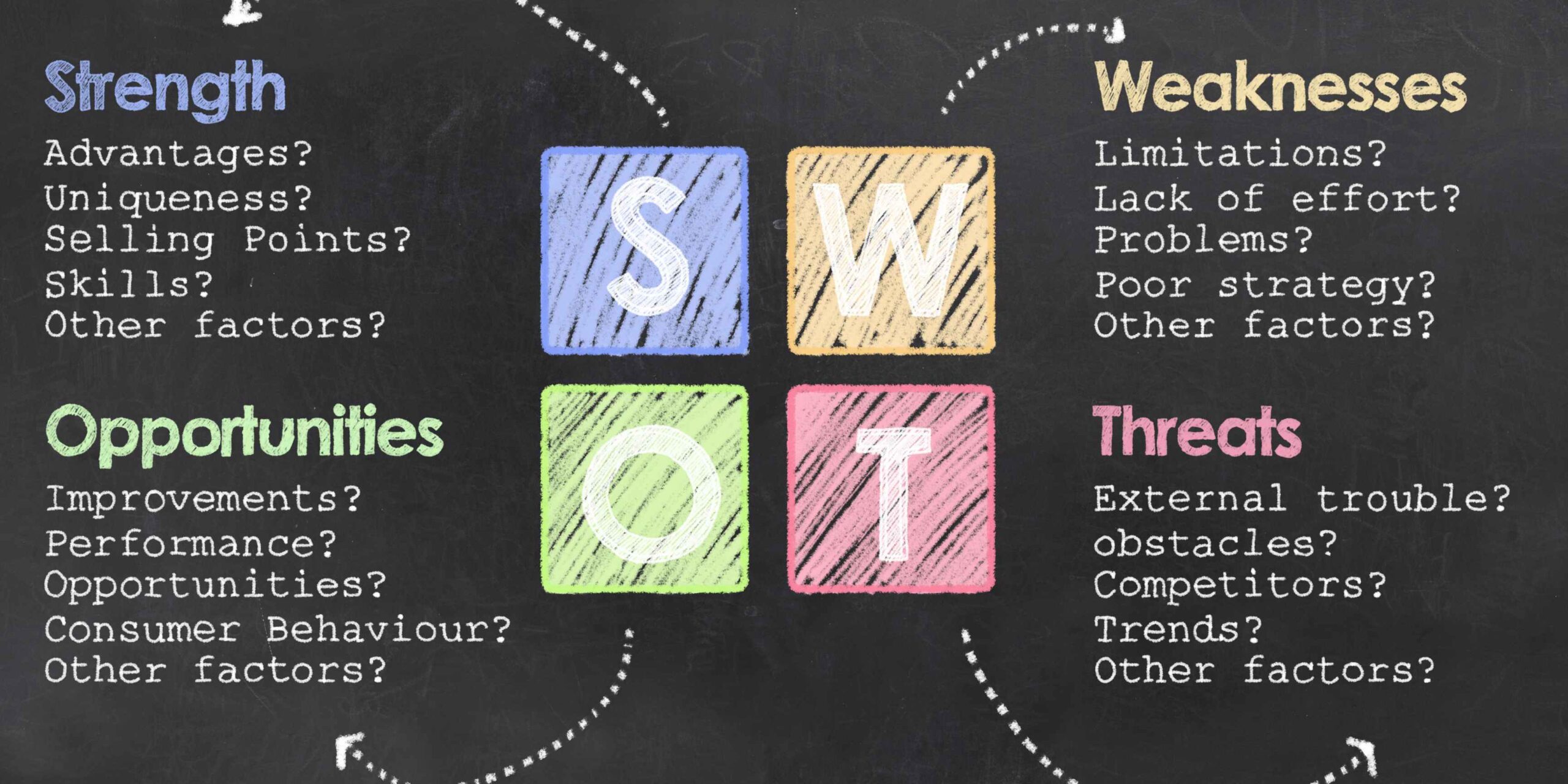
As an entrepreneur, it’s easy to get caught up in the day-to-day tasks of running your business. From managing employees to dealing with customers, it can feel like there’s never enough time to focus on the big picture. However, if you want your business to grow and thrive, it’s essential to take a step back and ask yourself: Am I working on my business or in my business?
What Does It Mean to Work in Your Business?

Working in your business refers to the day-to-day operations that are required to keep your business running smoothly. This includes tasks such as providing services or producing products, managing employees, and handling customer interactions. While these tasks are essential for the success of your business, it’s important to recognize that they are not the only tasks that need to be done. In order to create a successful and sustainable business, entrepreneurs must also focus on working on their business. In this article, we’ll explore what it means to work in your business and provide five key points to help you understand its importance.
1. Providing Services or Producing Products

One of the most important aspects of working in your business is providing services or producing products. This is the core of your business and the reason why customers come to you. Whether you’re a consultant, a restaurant owner, or a software developer, you need to provide high-quality services or products to your customers in order to keep them coming back. This requires a lot of hard work and dedication, and it’s important to ensure that your team is well-trained and equipped to provide the best possible service or product.
2. Managing Employees

Another important aspect of working in your business is managing your employees. This includes hiring, training, and supervising your staff. You need to ensure that your employees are motivated, productive, and working towards the same goals as your business. This requires effective communication and leadership skills, as well as the ability to delegate tasks and responsibilities effectively.
3. Handling Customer Interactions

Customer interactions are a crucial part of working in your business. Whether it’s answering phone calls, responding to emails, or dealing with complaints, you need to ensure that your customers are satisfied with the service they receive. This requires excellent customer service skills, the ability to listen and respond to feedback, and a commitment to resolving issues in a timely and effective manner.
4. Managing Finances

Managing finances is another important aspect of working in your business. This includes keeping track of expenses, managing cash flow, and preparing financial statements. You need to ensure that your business is financially stable and that you have the resources you need to continue providing high-quality services or products to your customers.
5. Ensuring Compliance

Finally, working in your business also involves ensuring compliance with regulations and laws. This includes everything from health and safety regulations to tax laws and employment regulations. You need to ensure that your business is operating within the law and that you are meeting all of your obligations as an employer and a business owner.
Working in your business is essential for the day-to-day operations of your business. It involves providing high-quality services or products, managing employees, handling customer interactions, managing finances, and ensuring compliance with regulations and laws. While it’s important to focus on working in your business, it’s equally important to focus on working on your business in order to create a successful and sustainable business.
What Does It Mean to Work on Your Business?

Working on your business means taking a strategic approach to your operations. It involves setting goals, creating plans, and implementing systems that will help your business grow and succeed. When you work on your business, you’re focused on the big picture, thinking about the long-term vision for your company.
Some examples of working on your business include:
- Developing a marketing plan to attract new customers
- Creating a budget and financial plan to ensure long-term profitability
- Establishing processes and procedures to streamline operations
- Identifying new opportunities for growth and expansion
Working on your business requires a different mindset than working in your business. Instead of being focused on the day-to-day tasks, you’re thinking about the future and how you can position your business for success.
1.Staying Focused on Your Goals

When you work on your business, you’re focused on your long-term goals and vision. This helps you stay motivated and on track, even when you’re dealing with day-to-day challenges. By having a clear vision for your business, you can make better decisions and stay focused on what’s important.
Staying focused on your goals is essential for success. It’s easy to get bogged down in the day-to-day tasks of running a business and lose sight of the big picture. When you work on your business, you’re taking a step back and thinking about the long-term vision for your company. This helps you stay motivated and on track, even when you’re dealing with challenges or setbacks.
To stay focused on your goals, it’s important to set clear objectives and create a roadmap for achieving them. This means identifying your long-term vision for your business and breaking it down into smaller, achievable goals. By setting clear goals, you can measure your progress and stay motivated as you work towards achieving them.
2.Identifying New Opportunities

When you’re always working in your business, it’s easy to miss new opportunities for growth and expansion. By taking a step back and working on your business, you can identify new markets, new products, and new ways to reach customers. This can help you stay ahead of the competition and position your business for long-term success.
Identifying new opportunities is essential for growth. As markets change and new technologies emerge, it’s important to stay ahead of the curve and identify new opportunities for growth and expansion. When you work on your business, you’re taking a step back and thinking about the big picture. This helps you identify new markets, new products, and new ways to reach customers.
To identify new opportunities, it’s important to stay informed about industry trends, emerging markets, and new technologies. This means reading industry publications, attending conferences, and networking with other entrepreneurs. By staying informed, you can identify new opportunities and position your business for success.
3.Creating Systems and Processes

Working on your business involves creating systems and processes that can help your business run more efficiently. By streamlining your operations and eliminating inefficiencies, you can save time and money, which can help your business grow and thrive.
Creating systems and processes is essential for efficiency. When you work on your business, you’re taking a step back and thinking about how you can streamline your operations and eliminate inefficiencies. This can help you save time and money, which can be reinvested into your business for growth and expansion.
To create systems and processes, it’s important to identify areas of your business that can be automated or streamlined. This means identifying repetitive tasks that can be automated, creating standard operating procedures for your employees, and implementing software or tools that can help streamline your operations.
4. Planning for the Future

When you work on your business, you’re focused on the future. This means you’re thinking about where your business is headed and how you can position it for long-term success. By planning for the future, you can make better decisions today that will help your business thrive tomorrow.
Planning for the future is essential for long-term success. When you work on your business, you’re taking a step back and thinking about the big picture. This helps you identify trends, opportunities, and challenges that may impact your business in the future. By planning ahead, you can make better decisions today that will help your business thrive tomorrow.
To plan for the future, it’s important to set long-term goals and create a roadmap for achieving them. This means identifying your vision for your business and breaking it down into smaller, achievable goals. By setting clear goals, you can measure your progress and make adjustments as needed to stay on track.
There is clearly more advantage, as a business owner, to work on your business as that will yield the highest payback. As a business owner you must devise strategies to work on your business and make that a priority. Below are some ideas on how to work on your business.
How to Work on Your Business

Working on your business requires a different mindset than working in your business. Here are some tips to help you make the shift:
1. Set Aside Time for Strategic Planning

To work on your business, you need to set aside time to focus on strategic planning. This means taking a step back from the day-to-day tasks and thinking about the big picture. Schedule regular planning sessions where you can brainstorm new ideas, set goals, and create plans for growth.
Setting aside time for strategic planning is essential for success. When you’re always focused on the day-to-day tasks of running your business, it’s easy to lose sight of the big picture. By setting aside time for strategic planning, you can take a step back and think about the long-term vision for your company.
To set aside time for strategic planning, it’s important to create a schedule and stick to it. This means setting aside time each week or month to focus on strategic planning. During these sessions, you can brainstorm new ideas, set goals, and create plans for growth.
2. Delegate Operational Tasks

To free up time for strategic planning, you need to delegate operational tasks to others. This means hiring employees or outsourcing tasks to contractors or freelancers. By delegating tasks, you can focus on the big picture while others handle the day-to-day responsibilities.
Delegating operational tasks is essential for efficiency. When you’re always focused on the day-to-day tasks of running your business, it’s easy to get bogged down and lose sight of the big picture. By delegating tasks, you can free up time to focus on strategic planning and other high-level tasks.
To delegate operational tasks, it’s important to identify the tasks that can be outsourced or delegated to others. This means identifying repetitive tasks that can be automated, creating standard operating procedures for your employees, and hiring staff or contractors to handle tasks that require specialized skills.
3. Focus on Your Strengths

To work on your business, you need to focus on your strengths. Identify the areas where you excel and delegate the rest. This will help you stay focused on the tasks that are most important for your business.
Focusing on your strengths is essential for success. When you’re always trying to do everything yourself, it’s easy to get bogged down and lose sight of the big picture. By focusing on your strengths, you can delegate the rest and free up time to focus on the tasks that are most important for your business.
To focus on your strengths, it’s important to identify the tasks that you excel at and delegate the rest. This means hiring staff or contractors to handle tasks that require specialized skills, such as accounting or marketing. By focusing on your strengths, you can stay motivated and on track as you work towards achieving your goals.
4. Stay Informed

To work on your business, you need to stay informed about industry trends, new technologies, and emerging markets. This means reading industry publications, attending conferences, and networking with other entrepreneurs. By staying informed, you can identify new opportunities and position your business for success.
Staying informed is essential for growth. As markets change and new technologies emerge, it’s important to stay ahead of the curve and identify new opportunities for growth and expansion. When you stay informed, you can identify new markets, new products, and new ways to reach customers.
To stay informed, it’s important to read industry publications, attend conferences, and network with other entrepreneurs. This will help you stay up-to-date on the latest trends and technologies in your industry. By staying informed, you can identify new opportunities and position your business for success.
Conclusion
Working on your business is essential for long-term success. While it’s important to handle the day-to-day tasks of running your business, it’s equally important to take a step back and focus on the big picture. By working on your business, you can identify new opportunities, create systems and processes, and position your business for long-term success. So, ask yourself: Are you working on your business or in your business? If you’re not sure, it’s time to make a change.
At Financial Solutions, we specialize in providing financial consulting and support to small and medium-sized businesses. Our team of experts can help you develop a clear strategy, identify your core competencies, and implement systems and processes that will help your business grow and thrive. So, if you’re ready to take your business to the next level, visit our website at ww.amazingfinancialsolutions.com and schedule a consultation with one of our experts to take your business to the next level and help you work on your business and achieve your goals. Don’t wait – start working on your business today!
